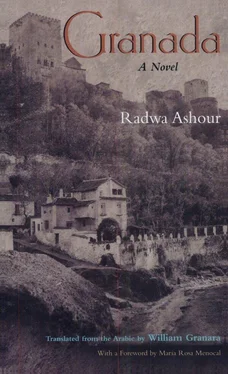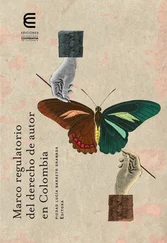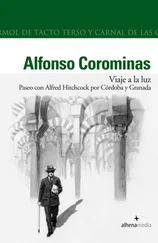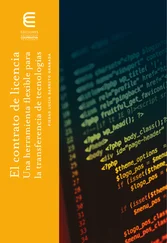Radwa Ashour - Granada
Здесь есть возможность читать онлайн «Radwa Ashour - Granada» весь текст электронной книги совершенно бесплатно (целиком полную версию без сокращений). В некоторых случаях можно слушать аудио, скачать через торрент в формате fb2 и присутствует краткое содержание. Год выпуска: 2003, ISBN: 2003, Издательство: Syracuse University Press, Жанр: Современная проза, Историческая проза, на английском языке. Описание произведения, (предисловие) а так же отзывы посетителей доступны на портале библиотеки ЛибКат.
- Название:Granada
- Автор:
- Издательство:Syracuse University Press
- Жанр:
- Год:2003
- ISBN:9780815607656
- Рейтинг книги:5 / 5. Голосов: 1
-
Избранное:Добавить в избранное
- Отзывы:
-
Ваша оценка:
- 100
- 1
- 2
- 3
- 4
- 5
Granada: краткое содержание, описание и аннотация
Предлагаем к чтению аннотацию, описание, краткое содержание или предисловие (зависит от того, что написал сам автор книги «Granada»). Если вы не нашли необходимую информацию о книге — напишите в комментариях, мы постараемся отыскать её.
Granada — читать онлайн бесплатно полную книгу (весь текст) целиком
Ниже представлен текст книги, разбитый по страницам. Система сохранения места последней прочитанной страницы, позволяет с удобством читать онлайн бесплатно книгу «Granada», без необходимости каждый раз заново искать на чём Вы остановились. Поставьте закладку, и сможете в любой момент перейти на страницу, на которой закончили чтение.
Интервал:
Закладка:
Maryama shot a look in every direction like a threatened hawk and spotted two Castilian guards and a few passersby. She ran toward the boy and slapped him across the face. He was stunned and speechless as his eyes widened in shock. But he only started to cry when she grabbed him by the hand forcefully and started to scream at him in Spanish.
“Didn’t I warn you about playing with the Arab children? Now here you are learning sinful things from them!”
Maryama continued her shouting, bemoaning her bad luck, as people gathered around her including the two guards. She began to address the crowd.
“Tell me, what can we do? Isn’t there a way to protect our children from those evil people? Here you see before you my son, the fruit of my womb, and me, a pure-blooded Castilian woman, and he’s singing Arabic songs and saying ‘Allah is great’!”
She turned around and started to scold the boy once again when some of the people tried to calm her down, saying that he was only a little boy who doesn’t realize what he’s saying. Maryama noticed a man from Albaicin whom she knew, and in his eyes she saw a gleam that encouraged her to go on with the trick she was playing on the Castilians. One of the passersby reprimanded the boy, while a guard patted him on the head and spoke to Maryama. “Don’t be so harsh with him. He’s still young, and he doesn’t understand what he’s doing.”
The boy was terrified, and he had no idea what was happening to him. She took him by the hand and walked away. On the way back home she asked, “Where do you live, son?”
He stammered and then he answered.
She brought him back to his mother. “You should teach your children to be more careful outside the house,” she advised.
Maryama did exactly what Hasan wanted her to do in raising the children. At home they spoke Arabic and they lived their daily lives as their fathers and grandfathers had lived. But on the street and in school they spoke Spanish, and they conducted themselves in the manner prescribed by the authorities and the Office of Inquisition. This is what Hasan wanted, and this is what Maryama carried out, but in her own way.
“Whoever speaks Spanish at home or does what the Castilians do will turn into a baboon.”
“Has any child ever been turned into a baboon before, Mummy?”
“Many have. Tomorrow, I’ll take you to the market and show you the baboons and how their owners make money off of them. The poor things, they used to be children each with a face like the moon, then they all turned into baboons.”
“And those who speak Arabic outside the house?”
“Whoever speaks Arabic outside or reveals one word of what goes on inside the house will be lost on the street, and won’t be able to find his way home. He’ll wander from one neighborhood to the other unable to find his house, as though it vanished into thin air.”
Maryama did her best to cope with the times, and her days, although fraught with worries, were bearable and sometimes happy because her heart was strong and full of love for her children and husband. She didn’t dwell much on his behavior, and she learned how to find excuses and justifications for his angry outbursts. She told herself he was putting on this harsh facade, and that his overprotection, which some saw as weakness and lack of courage, was nothing more than his attempt to secure the safety of his family and shield them from problems. Sometimes she felt him distant and distracted. And when he was present, she noticed that he would easily become annoyed with the children or with her as though they had all become a nuisance he tried to avoid. She thought to herself that he didn’t want her or her children, and she was entrapped by the thought that some other woman had stolen his heart, and that he had returned in a rage against his life with her. These thoughts nearly consumed her, but she would shake them off as lies, seeking solace in the memory of other moments when she saw clearly Hasan’s intimacy and affection that revealed his tender heart. Then she would blame herself for increasing his burden in these difficult times.
It was a visit that brought nothing good. Her two brothers knocked on the door at sunrise. She put on her clothes and she and Hasan followed them out. Her father had died during the night. Maryama lifted the sheet over his face, looked at him, and covered him again. She stood over him for a long time, motionless as though her soul had retreated and her body had broken down. Then the tears poured out.
“We will do what’s befitting us and him,” insisted her brothers. “Let the Castilians go to hell!” Hasan tried to caution them not to rush into anything in order to avoid problems. But the brothers were adamant. Maryama was too grief stricken to say anything.
They washed Abu Ibrahim’s body, wrapped it in a shroud, and escorted the corpse in procession from the house, through the alleyways, to the secret mosque where they recited prayers over him, and then brought him to the graveyard to bury him. That evening, the mourners gathered and the brothers took turns reciting the Quran. The voices reverberated throughout the neighborhood with the relentless sounds of longing.
On the third day of mourning, Maryama returned home. By week’s end, the Castilians had forced their way into her father’s house and arrested her mother and brothers. She wondered where they took them and what they would do to them. Would the Office of Inquisition stop at staging a public trial and imposing a fine, or perhaps a mere sentence of a year or two in prison? Or would they take it further? Would she ever see them again, or would life for all of them come to an end without ever having their eyes meet one more time?
Maryama had no recourse but to regularly attend the auto-dafé processions, thinking she might see her mother or one of her brothers, or perhaps all of them together. She indulged in the hope that they would be found innocent or simply be obliged to pay a fine. She even wished that they might get off with being paraded in the sanbenito, the robe of penitents, or even be forced to perform the ceremonial circumambulation with a donkey, or have their names inscribed on a banner and hung in public to remind the neighbors of their sins and penance.
On one particular morning, Maryama left the house early and waited outside the church with a throng of people whose hearts were in their mouths just like hers. There were also crowds of Castilians who came to watch and listen. She stretched her neck, and her heart began to beat fast when she noticed the procession approaching. There was a line of the accused dressed in liturgical garb, walking barefoot, with ropes around their necks and a candle in hand. They entered the church to perform the rituals of penance. The crowd was blocking her view, so she rushed inside and occupied a place where she could see everything. This is what she always did, whether in the burning heat of summer or the bitter cold of winter, she waited. She waited until she heard the beating of drums and the blowing of bugles, and she saw the clerics, the officers of the Inquisition, and the town notables approaching as the penitents marched behind them. The officials sat in places designated especially for them while the penitents sat in rows close by. Her eyes searched in every direction, oblivious to the increasing crowds and the rising clamor. She strained to listen as all her senses descended upon her ears and followed what the official read of the accusations and the sentences. He moved from one name to the next, from one sentence to the next until he finished without mentioning any of her family. She dragged herself back home disappointed. She hadn’t gone there to see a man whipped or a woman burned as a sentence. She left with the courtyard behind her bellowing with the shouts of the Castilian masses who had come to participate in the festivities and watch the exciting events. There were even among them people who had a brother, a daughter, or a neighbor found guilty.
Читать дальшеИнтервал:
Закладка:
Похожие книги на «Granada»
Представляем Вашему вниманию похожие книги на «Granada» списком для выбора. Мы отобрали схожую по названию и смыслу литературу в надежде предоставить читателям больше вариантов отыскать новые, интересные, ещё непрочитанные произведения.
Обсуждение, отзывы о книге «Granada» и просто собственные мнения читателей. Оставьте ваши комментарии, напишите, что Вы думаете о произведении, его смысле или главных героях. Укажите что конкретно понравилось, а что нет, и почему Вы так считаете.












